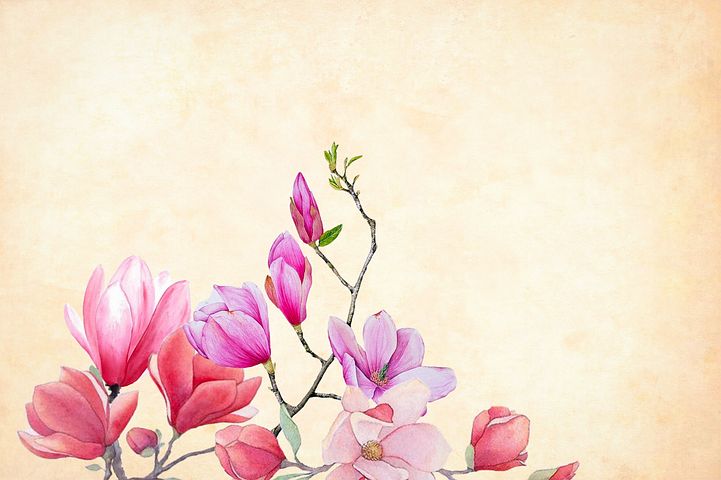
Reflections of Spring | Summary
The short story, Reflections of Spring by Duong Thu Huong, is about a day in an average man’s life. This man is going towards Hanoi when the bus breaks down and he has to spend the next few hours aimlessly. The story is told in flashbacks and present moments which are startlingly different. The man soaks up the day with an intense cup of nostalgia, thinking about his adolescent life and the girl he loved but lost. He visits a small shop when an old woman calls him for a little snack. The man, filled with familiarity with this shop and memories surging in his mind, goes in. There, while drinking a cup of tea, the young granddaughter of the shopkeeper comes out from the back and the man is struck by a strong sense of deja-vu. He is suddenly reminded of all those memories of his first love, his pretty neighbor. He starts reminiscing about his past while interacting with the present. The story follows the man’s retrospection about why he left his loved one behind and why he married his current wife, whom he continuously refers to as ugly and unwanted. The short story explores a married man’s mid-life crisis, his regrets, and choices; a man who is deeply entrenched within a rosy-tinted past, and thus, miserable in the present.
Duong Thu Huong’s short story depicts the melancholy longing of a man who has failed to find true love. Despite his flourishing job, wife, and children, the main character undergoes a regretful relapse. His jumbled thoughts, expressed through smooth, contrasted transitions in tone and time from past to present, are triggered by a trip to a tiny village and an encounter with a little girl who resembles his first love. A gust of wind reawakens a beautiful, faraway memory that had been dormant for many years.
Reflections of Spring | Analysis
“The Greek word for “return” is nostos. Algos means “suffering.” So nostalgia is the suffering caused by an unappeased yearning to return.” ― Milan Kundera, Ignorance
The short story is aptly named Reflections of Spring as the narrator allows the readers a peek into his past which is filled with metaphorical spring. Even though it is spring in the present, the past seems more glorified in comparison. This piece is written with a distinct yet smooth contrast between the two realities of a middle-aged man. One reality is his past, in which he is 18 years of age, falling in love with his neighbor’s kind and pretty daughter who brings him rice wafers when he is hungry late at night. This is the glorious and romanticized past he is relieving while sitting in a shop far from home. This is not as much a reality as it is a faraway nostalgic dream that keeps him trapped under the illusion that things could have been different, better. And the other reality is the one he is living in the present. This one is unsavory and bitter and full of remorse and resentment. The remorse is regarding the choices that led him to this point, the path he didn’t take, and the choices he didn’t make.
This unnamed narrator is an average middle-class man as is apparent from his profession as an economic planner and his business trip undertaken on a public bus. The readers are shown that in the past, he was living under poverty-stricken conditions, having to go hungry sometimes and not having enough facilities to study properly. This can be taken as his socio-economic mobility towards a better future where he is not suffering under the same conditions. This living standard, combined with the fact that he has a wife and kids, makes him an average middle-class middle-aged man with all the achievements of life.
However, he is not happy in the least, rather, he is miserable and agonized over his present circumstances. Despite choosing this way of life because of his own ambitions and need for a better lifestyle, he is haunted by all the choices that led him away from his one source of joy, the girl he loved.
The narrator’s mind is flooded with sweet memories of past love when he sees the shopkeeper’s granddaughter. He is reminded of a past where everything was much better than it might actually have been. As said famously by Marcel Proust, “remembrance of things past is not necessarily the remembrance of things as they were.” The readers read the past as something that must have been harsh on this man and his family. However, once the curtain on nostalgia falls on these memories, there appears an unreal distance between the past and present, which creates distortion within the perception of reality and time, ultimately resulting in a wretched existence.
The man is seemingly suffering from the mundaneness caused by a fast-moving society and ever-increasing capitalism which requires a clockwork-like existence from its slaves. This may have led him to depend on an alternate future that might have happened had he made different choices, choices he didn’t make. This alternate future may involve him saying goodbye to the girl he loved, going back to her when he had the chance, or maybe marrying her and living a much better life than this. However, the thing is, it is a fact that one cannot rewind time and relive the past, making new choices. This is simply not possible and thus offers an undeniable escape from the humdrum of a banal life. The man, like many others, falls into this superficially innocuous trap of nostalgia. One can question if there’s anyone who can deny this man his longing for something different, a better life, or for a lack of word, happiness. The man’s existence allows room for an escape, one may argue.
The girl from his past is depicted only positively as the story progresses through the eyes of this economic planner, demonstrating his passion for her. His first love serves as a constant reminder of the life he may have had. In actuality, he is now married to an unattractive wife, as told to the readers. “There was a hidden deal, then the marriage certificate,” implies that he married for financial reasons rather than personal reasons. His wife and the girl from his past are depicted as the opposite ends of a spectrum. The wife is described as needy, harsh, and haughty. The tone transforms dramatically every time the narrator recalls times with the girl he loved, even as he recounted strenuous situations of his past. Looking at his present life, one sees that this man has entered an arranged marriage, maybe because of societal pressure, financial reasons, or maybe a psychological need to have a home, a family. This marriage does not appear to be one filled with emotions or any sort of joy. One can only speculate about what might have forced this man to enter a loveless marriage. Or perhaps, there was love but there isn’t any now. This is again a dilemma. Will a man simply abandon his family and indulge in a fantastical version of the past in order to liberate himself from the present?
This question remains ambiguous and creates a sense of anguish and melancholy in the narrator as well as the readers as they are presented with a man in an unhappy home, simply regretting his life.
The story moves in smooth transitions between the past and present through the employment of flashbacks, reminiscent of modernist story-telling, containing elements of stream of consciousness. The flashbacks act as an agent of nostalgia, enhancing the emotions of the past. These fleeting memories only magnify the feelings of loneliness and sorrow, along with simmering anger towards his life and himself. This seems harmless but is actually a quagmire he may find nearly impossible to come out of, as long as the spring of the past is lovelier to him than the spring in front of him, as long as he is in love with a fictional version of the girl of the past, as long as he believes that life could have been different had he made different choices. This man may achieve great financial success, a hundred girls who look like his first love, or a house full of all the trinkets of the past, but he won’t be content unless he makes peace with his choices and himself. Perhaps that is what the author is trying to tell the readers, or perhaps this is just another tale of regrets and choices, the interpretation is entirely up to the readers.

